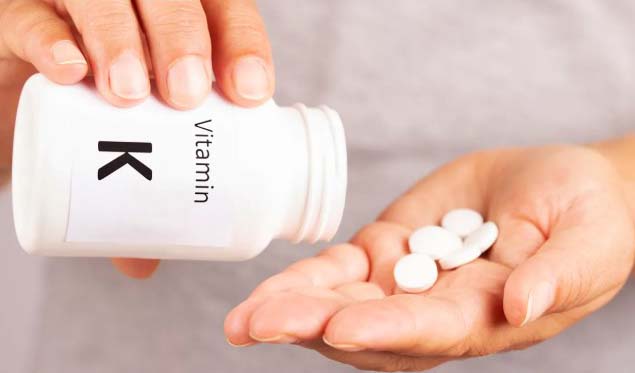Supercharged Vitamin K Could Help Repair the Brain and Regenerate Damaged Neurons
Nikhil Prasad Fact checked by:Thailand Medical News Team Oct 18, 2025 3 months, 3 weeks, 6 days, 31 minutes ago
Medical News: A breakthrough discovery by Japanese researchers
Scientists from Japan’s Shibaura Institute of Technology have created powerful new vitamin K analogues that may help the brain regenerate damaged neurons, offering new hope for conditions such as Alzheimer’s and Parkinson’s disease. These engineered compounds are designed to cross the blood-brain barrier efficiently and trigger brain cell growth by activating a specific receptor called mGluR1. This
Medical News report explores how these enhanced vitamin K forms could transform treatment for neurodegenerative disorders that currently have no cure.
 Supercharged Vitamin K Could Help Repair the Brain and Regenerate Damaged Neurons
How neurodegenerative diseases damage the brain
Supercharged Vitamin K Could Help Repair the Brain and Regenerate Damaged Neurons
How neurodegenerative diseases damage the brain
Disorders like Alzheimer’s, Parkinson’s, and Huntington’s disease occur when neurons gradually die, leading to severe memory loss, cognitive decline, and impaired movement. Existing drugs only relieve symptoms but cannot stop the death of brain cells. Scientists have long searched for ways to encourage the body to grow new neurons, known as neuronal differentiation. Natural vitamin K, typically linked to blood clotting and bone health, has shown potential for supporting brain cell protection—but its natural potency is too weak to be therapeutic.
Designing next-generation vitamin K analogues
In a detailed study conducted by the Department of Bioscience and Engineering at Shibaura Institute of Technology under Associate Professor Yoshihisa Hirota and Professor Yoshitomo Suhara, researchers synthesized 12 new vitamin K-based compounds. By combining vitamin K with retinoic acid—a vitamin A derivative that promotes neuron formation—they created hybrid molecules with significantly greater neuroactive properties. One compound, in particular, called the Novel Vitamin K analog (Novel VK), showed up to three times more efficiency in stimulating neuron formation compared to natural vitamin K.
Unlocking the mechanism behind neuron regeneration
The team discovered that vitamin K’s ability to promote neuron growth works through activation of the metabotropic glutamate receptor mGluR1, a receptor vital for brain communication. When mGluR1 is activated, it triggers genetic and epigenetic changes that drive neuron differentiation. Advanced molecular docking simulations confirmed that Novel VK binds more tightly to mGluR1 than natural vitamin K, explaining its stronger regenerative effect. Tests in mice showed that Novel VK easily crossed the blood-brain barrier, remained stable in the body, and was efficiently converted into MK-4, the biologically active form of vitamin K found in brain tissue.
A step closer to brain repair therapies
This discovery opens the door to regenerative treatments for neurodegenerative diseases. The researchers noted that restoring lost neurons could one day help reverse damage caused by Alzheimer’s, Parkinson’s, or other related disorders.
Unlike current treatments that only manage symptoms, vitamin K-derived therapies may directly encourage the brain to rebuild itself.
Promising future for patients worldwide
Dr. Hirota emphasized that these new compounds might revolutionize neurological care by creating drugs that not only protect neurons but actively replace those lost to disease. If developed into safe therapies, they could dramatically improve patients’ quality of life and reduce the immense social and economic burden of long-term neurological care.
The study findings were published in the peer reviewed journal: ACS Chemical Neuroscience.
https://pubs.acs.org/doi/10.1021/acschemneuro.5c00111
For the latest on Neuron Regeneration, keep on logging to Thailand
Medical News.
Read Also:
https://www.thailandmedical.news/articles/alzheimer,-dementia-
https://www.thailandmedical.news/articles/herbs-and-phytochemicals
